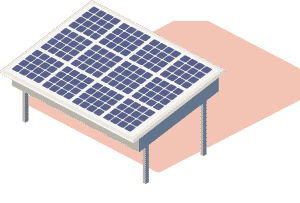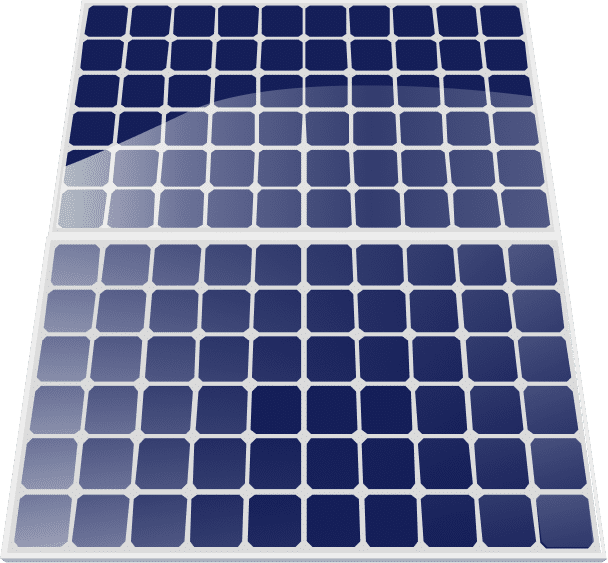Investing in Solar Energy

Investing in Solar Energy
It is possible to save cash by investing in solar power. It all depends on where you live the incentives available by your state, and what type of system you select.
You’ll need to request a quote for the installation of your solar panel in order to calculate the expected ROI of solar panels. The savings could be substantial regardless of the specific situation. A 5-kilowatt system could yield a savings over the course of a lifetime of more than 38,000 dollars within Oregon and $70,000 in Nevada. These are very different figures however they still provide a significant return on investment on solar power panels.
Is solar energy expensive?
It is not easy to decide whether you want to put money into your home, particularly if you are not familiar with solar. A lot of homeowners are confused regarding how to set up solar panels, what they price, and how they will appear like. We hear the most common questions: “Is solar power expensive?” “Is it worth the investment?” And “Can it be afforded?” “.
These are important questions to inquire about because solar is probably just one of the many investment options that you will be considering in a given year. You could also think about an upgrade to your vehicle as well as medical or tuition. What can you do to determine if solar is too costly or the right price?
What will it cost to go solar?
The typical rooftop solar system within the United States has a capacity of 5 kW. At \$2.98 per Watt, the cost for a system of solar panels is \$2.98 (the lowest cost ever). That means that an average solar installation would cost around \$14,900. It’s roughly the same amount as a new economy sedan. Federal solar Investment Tax Credit (ITC) gives you 30% off of solar installation costs, provided you do not lease. This could bring the{ average|| total} cost to just $10,430.
The cost of solar for residential use is decreasing however, waiting to see it become more affordable could prove to be a bad idea. Think about how long you plan to remain in your home, as well as other factors such as whether or not the tax credits will expire or extend (currently extended to 2022).

Are solar energy payments taxable?
What is a tax credit?
A tax credit is reduced income tax that you would otherwise be required to pay for dollar. A tax credit of $1,000 could reduce the federal tax on income by $1,000. While the federal tax credit is often referred to in the form of ITC also known as Investment Tax Credit, this isn’t the same as the ITC that is available to solar-powered companies.

What is the federal solar credit?
Federal residential solar energy credit can be claimed as an income tax credit for federal income taxes. It’s for a specific percentage of the price of the solar PV system. Other types of renewable energy may also be eligible for credits similar to this however they are not included in this guideline.
The system has to be operational in the tax year to produce electricity for residences within the United States. The IRS doesn’t have a clear-cut test for what constitutes “placed in service” but it has defined the term”placed into service” as a completed installation.
Congress approved an extension of the ITC in December of 2020. It offers a tax credit for systems installed between 2020-2022 and 22% for those constructed between 2023-2023. Systems that were installed prior to December 31, 2019 were eligible for a 30-year% credit. Unless Congress renews the credit, the tax credit is set to expire by 2024.
There is no limit to the amount you are entitled to claim.
Am I eligible to claim the federal solar tax credit?
If you meet the following requirements then you could be qualified to receive this tax credit.
- From January 1st, 2006, and December 31, 2023, the solar PV system was installed.
- If the power produced by the solar PV system does not exceed the energy use of your home the system can be credited to your primary or secondary residence. A taxpayer may claim a section 25D tax credit from the IRS to purchase a portion of a community-scale solar system.
- The solar PV system you own (i.e. you bought it with cash or financing, but you’re not leasing the system nor any arrangement to purchase electricity from a system isn’t yours).
- The solar PV system is either brand new or is for the first time. Only the initial setup of solar system is acceptable to be credited.
Are tax credits for solar energy refundable?
Are you seeing your employer putting off taxes?
The majority of Americans have their employers automatically deduct their taxes out of their pay checks. It’s much easier to calculate your taxes at the end of the year rather than having to work as your own accountant. The amount that is held back is contingent upon your earnings, however, most people will pay between hundreds or thousands of dollars in income taxes.
The ITC can help you. The ITC will cover 26 % of your installation costs and not just the panels but also the solar components like your inverter and the racking system. It could also cover a battery backup system such as Tesla Powerwall. Tesla Powerwall, provided that you make use of renewable energy to charge it. There is no cap on the amount of federal ITC’s dollars.
Let’s say you have a \$20,000 solar installation. Let’s assume that you own a solar array that is worth $20,000. It is the federal ITC is a $5,200 tax credit. After all taxes have been calculated, this credit is added to your total taxes due, reducing your tax owed by $5,000.
You’ll have to pay 14 605.50 in federal taxes if you earn $85,526 per year (the minimum amount to be taxed in the federal fourth income bracket). The tax amount will be taken from your salary through your workplace. It would be only $9405.50 if you had the federal ITC worth $5200.
You would have to return the $5,200 your employer withheld from you. You will receive the $5,200 in taxes back. This is basically a refund.
What happens if there's still credit?
However, there are situations in which the solar ITC won’t give you a the full amount. The amount of $5,200 that was used to pay $3,000 in tax owed will not be returned. Instead, the credit will reduce the amount to zero and give you $3,000 back. It will then roll over to the following year, where you can add any remaining federal ITC to your tax bill.
This is a major distinction from a refundable credit tax credit. A credit that can be refunded would permit you to receive $3,000 back if you spent less than $5,200. The IRS would then send you a check for $2,200.
Taxes on income are required to maximize your credits for federal solar taxes returns. The solar tax credit for the federal government is not refundable and you won’t receive any income tax, regardless of whether you receive Social Security benefits or your main source of income.
Shneyder Solar discourages people from going solar if they don’t have federal income tax to pay. Solar panels have become more affordable in recent times due to the ITC. Solar installations is more expensive even without tax incentives.
Are solar energy stocks a good investment?
As per the Shneyder Solar, the average solar investment tax credit (ITC) was introduced in 2006. It has resulted in an increase of 52% annually rate. Furthermore, the growing demand could result in greater profits for solar firms.
Shneyder Solar is a convenient way to invest in the solar energy. The company produces solar power equipment, products for end users, and equipment for solar panel manufacturers and solar installers or businesses that specialize in the production of solar cells. The fund’s return was -15.59 percent on a calendar-year basis, and 41.10 percent over a 3-year period.
How does solar energy save money?
It is possible to be skeptical at the initial cost of solar energy. Solar panels are a great investment and will become a viable option over the course of time. The benefits for the environment from solar power are worth the time and effort. Shneyder Solar is passionate to help you understand renewable energy sources. We’ve created{ a list of|| the following} three ways that solar energy can help you save money. Visit our site to receive an instant quote if would like to switch to solar power.
Reduce or eliminate your electric bill
Your average energy consumption and the number of panels you have in your home will affect the cost of your electric bill. Electricity is the biggest monthly expense for American households. A few years without paying electricity will quickly pay off the initial costs of installation. Even if your goal is to be energy-free you can reduce your expenses and only use the local grid when you require it. It’s never been easier to bring your electric bill under control with the technological advancements in batteries as well as backup generators.
Tax incentives
Any commercial or residential home owner that invests into your own solar-powered system may be eligible for tax-free benefits from U.S. Government and some states’ governments. The incentives were once up to 26% but will be reduced to 22 percent by 2020. These incentives are meant to help offset the initial costs for solar energy and will make it easier for homeowners to take advantage of solar power.
An investment that is smart
Many reasons make solar energy is a good investment. Solar panels can improve the equity of your house particularly in states that promote renewable energy sources. It is also possible to invest in the growing solar sector and help local solar businesses such as Shneyder Solar. Although solar energy has become more affordable over the past few years, the cost of nuclear energy remains expensive. The latest, more efficient technology is continually being developed in the solar sector. Solar panels last for a long time and don’t need regular maintenance. Solar panels can last for a long time provided you maintain them. It is possible to help your neighbors make the switch to solar energy that can contribute to a better future for the planet.
What solar energy companies to invest in?
Many people and businesses wish to lower their carbon footprints. Solar energy is an increasingly popular option for natural gas and oil. From 2014 on, the price of solar panels dropped 70%. It is expected that more than one-seventh of all homes will have rooftop panels by 2030. The U.S. government will also extend its solar energy plans.
Solar energy is getting more well-known across America and across the globe. So it’s no surprise that solar-related stocks have become a popular investment. They offer investors longer-term prospects, considering that the field of renewable energy is predicted to expand rapidly in the near future. Although solar energy stocks can be unstable as the market is still expanding however, they remain an investment choice for investors, as the country transitions from fossil fuels to renewable resources.
You can cut down on the cost of electricity or completely eliminate it, reduce the carbon emissions, boost the value of your house, and become completely or partially energy independent through switching to solar energy. Shneyder Solar will make your switch to solar power seamless and simple. Our licensed solar technicians will install a lasting solar system. Shneyder Solar is the right choice if you are trying to transition to solar power. For a free quote, call or visit our website!
GET YOUR FREE PROPOSAL IN A FEW EASY STEPS
Fill out the form and our sales consultant will contact you! Once you’ve had your initial consultation, you’ll begin your solar journey.
